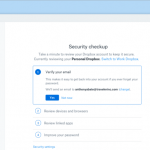New Broadband Privacy Proposal Still Restricts Ad Targeting
by Wendy Davis, Staff Writer @wendyndavis, October 6, 2016

Faced with intense criticism by broadband providers, Federal Communications Commission Chairman Tom Wheeler has tweaked his proposal for privacy rules. But at first glance, the new proposal doesn’t appear to be significantly different than the original.
Wheeler’s new plan, unveiled today, requires ISPs to obtain subscribers’ opt-in consent before using or sharing “sensitive” information for marketing purposes.
But the FCC is defining sensitive more broadly than the ad industry. Specifically, the FCC says that sensitive data includes people’s Web browsing history, app usage and the contents of communications, like the text of emails. (The FCC also defines geolocation data, health information, financial information, social security numbers as “sensitive,” but so do some ad companies.)
The new proposed rules would allow ISPs to use some limited “non-sensitive” information about subscribers for ad purposes on an opt-out basis; for example, an ISP could use information about a subscriber’s service tier in order to market an alarm system to that person. Wheeler’s original proposal didn’t distinguish between “sensitive” and “non-sensitive” information.
But as a practical matter, the new proposal — like the original one — would require AT&T, Comcast and other broadband providers to obtain subscribers’ explicit permission before drawing on their Web-surfing data for ad targeting.
Google, Facebook and other Web site operators currently let people opt out of receiving behaviorally targeted ads, but don’t seek their advance permission.
Broadband providers spent much of the last seven months arguing to the FCC that they shouldn’t be subject to more stringent privacy rules than companies like Google and Facebook.
Wheeler obviously rejected those arguments with his new proposal, which hinges on the idea that broadband providers have a different relationship with subscribers than any one Web site people visit.
“ISPs serve as a consumer’s “on-ramp” to the Internet,” the FCC said in a fact sheet outlining the proposal. “Providers have the ability to see a tremendous amount of their customers’ personal information that passes over that Internet connection, including their browsing habits. Consumers deserve the right to decide how that information is used and shared.”
Privacy advocates are largely cheering news of the new proposal. “Every click an American makes online paints a detailed picture of their personal and professional lives, and this sensitive information should be protected by strong broadband privacy standards,” Sen. Ed Markey (D-Massachusetts) said Thursday in a statement.
On the other hand, the lobbying group USTelecom is already pushing back at the new plan. “Consumers are best served when privacy rules are clear and consistent across the entire internet,” that group said in a statement.
“We are concerned,” USTelecom adds, “that the commission, which has no expertise with regard to determining the content of speech, is now attempting to redefine what consumers may regard as sensitive.”
The Association of National Advertisers added: “It will be crucially important that the definition of sensitive information is not overly broad.”
MediaPost.com: Search Marketing Daily
(10)













